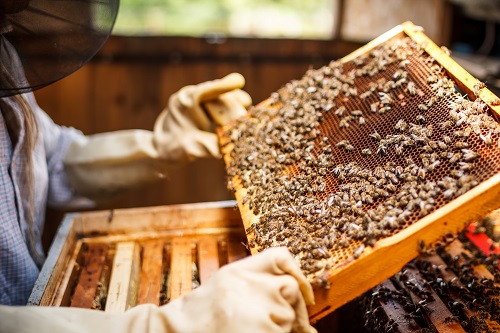Local Man Remains Dedicated to Protecting Endangered Honeybees
July 07, 2018
Despite all the focus that’s been placed on honeybees in the last few years, specifically how their populations have declined significantly, there are still those out there who see them and other bee species as pests and a nuisance. In Johnson County, Kentucky, one man, Jason Conley, has made it his mission to protect bees and educate his community about these little insects’ overall importance. "I used to watch how those bees swarm and how their life is to protect one bee that's in the colony, and that is that queen, and it just amazed me," Conley said.
Working with honeybees since the age of 12, Conley has spent almost four decades working with the ailing pollinators, continuing the legacy of two previous generations in his family, and more than earning his title of the “Bee Man.” Conley took both the skills and knowledge he received from his grandfather and father, and he is using them in his quest to inform the public about bees. In the words of James Conley, Jason’s father, bees “were put here for a purpose. The Lord put them here for us, and we need to protect them as best we can. We take care of them—they will take care of us."
When explaining why honeybees are so important to us as a species, Conley stated about three quarters of the foods we consume are made possible due to pollination, especially by bees. "These bees are so important to us because, without these bees, we ain't got pollination for our foods that we eat. Seven of the 10 foods we eat this week were pollinated by a honeybee." With his passion for protecting bees as strong as it is, Conley has taken to responding to calls for removing runaway bee swarms that settled in populated areas or beehives that cropped in places they shouldn’t have been in, from “floors, ceilings, walls, toilets, bathtubs, [and] under bathtubs," per Conley.
Based on Conley’s experience, many homeowners opt for spraying to kill honeybees, but he hopes to warn such people against this for several reasons—the first being that several bee species have become endangered. As for the other main reason, empty honeycombs provide good homes for ants, moths, roaches, and other bugs that could damage one’s domain. "When people take it on their own to spray these bees and try to kill them, they are opening up a window of problems—you know, you get roaches really bad because roaches also feed off the comb and the honey," Conley added.
Photo By grafvision


.jpg)



